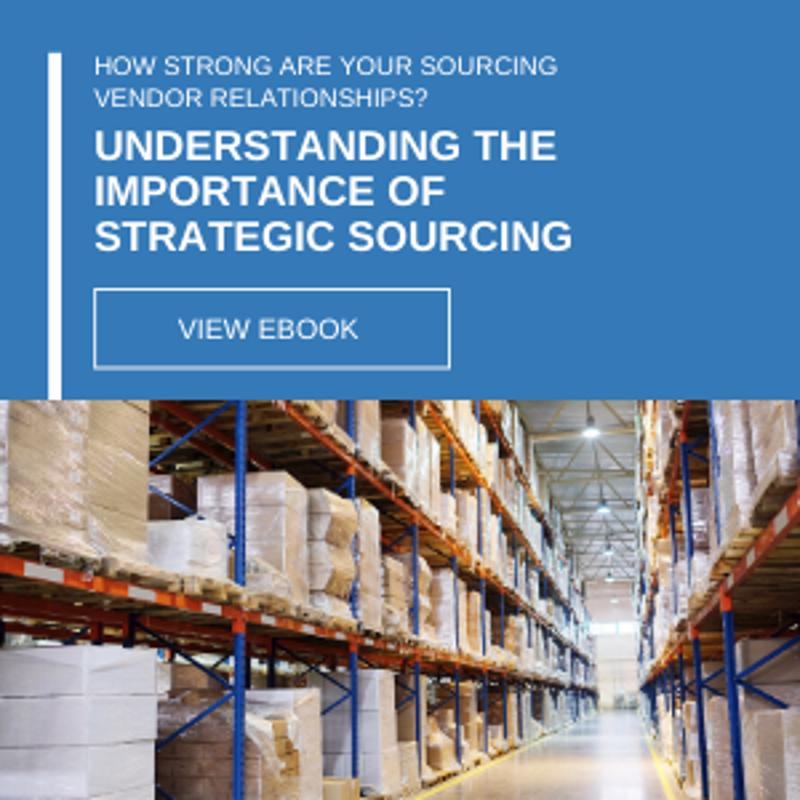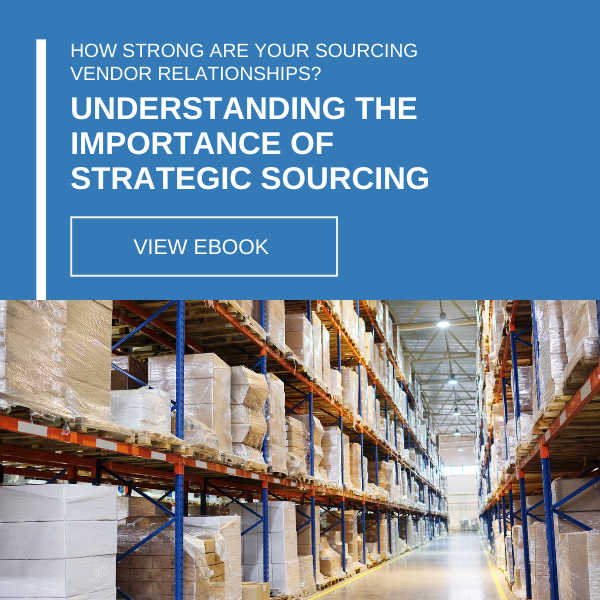-
Subscribe to Blog:
SEARCH THE BLOG
CATEGORIES
- Aerospace
- Asset Maintenance
- Automotive
- Blog
- Building Products
- Case Studies
- Chemical Processing
- Consulting
- Food & Beverage
- Forestry Products
- Hospitals & Healthcare
- Knowledge Transfer
- Lean Manufacturing
- Life Sciences
- Logistics
- Manufacturing
- Material Utilization
- Metals
- Mining
- News
- Office Politics
- Oil & Gas
- Plastics
- Private Equity
- Process Improvement
- Project Management
- Spend Management
- Supply Chain
- Uncategorized
- Utilities
- Whitepapers
BLOG ARCHIVES
- September 2025 (1)
- August 2025 (2)
- July 2025 (2)
- June 2025 (4)
- May 2025 (1)
- April 2025 (1)
- March 2025 (1)
- February 2025 (4)
- January 2025 (4)
- December 2024 (4)
- November 2024 (2)
- October 2024 (6)
- September 2024 (5)
- August 2024 (5)
- July 2024 (6)
- June 2024 (3)
- May 2024 (3)
- April 2024 (4)
- March 2024 (3)
- February 2024 (4)
- January 2024 (5)
- December 2023 (2)
- November 2023 (1)
- October 2023 (6)
- September 2023 (3)
- August 2023 (4)
- July 2023 (2)
- June 2023 (3)
- May 2023 (7)
- April 2023 (3)
- March 2023 (3)
- February 2023 (5)
- January 2023 (6)
- December 2022 (2)
- November 2022 (5)
- October 2022 (5)
- September 2022 (5)
- August 2022 (6)
- July 2022 (3)
- June 2022 (4)
- May 2022 (5)
- April 2022 (3)
- March 2022 (5)
- February 2022 (4)
- January 2022 (7)
- December 2021 (3)
- November 2021 (5)
- October 2021 (3)
- September 2021 (2)
- August 2021 (6)
- July 2021 (2)
- June 2021 (10)
- May 2021 (4)
- April 2021 (5)
- March 2021 (5)
- February 2021 (3)
- January 2021 (4)
- December 2020 (3)
- November 2020 (3)
- October 2020 (3)
- September 2020 (3)
- August 2020 (4)
- July 2020 (3)
- June 2020 (5)
- May 2020 (3)
- April 2020 (3)
- March 2020 (4)
- February 2020 (4)
- January 2020 (4)
- December 2019 (3)
- November 2019 (2)
- October 2019 (4)
- September 2019 (2)
- August 2019 (4)
- July 2019 (3)
- June 2019 (4)
- May 2019 (2)
- April 2019 (4)
- March 2019 (4)
- February 2019 (5)
- January 2019 (5)
- December 2018 (2)
- November 2018 (2)
- October 2018 (5)
- September 2018 (4)
- August 2018 (3)
- July 2018 (2)
- June 2018 (4)
- May 2018 (3)
- April 2018 (3)
- March 2018 (2)
- February 2018 (2)
- January 2018 (1)
- December 2017 (1)
- November 2017 (2)
- October 2017 (2)
- September 2017 (1)
- August 2017 (2)
- July 2017 (2)
- June 2017 (1)
- April 2017 (3)
- March 2017 (3)
- February 2017 (2)
- January 2017 (2)
- December 2016 (2)
- November 2016 (4)
- October 2016 (4)
- September 2016 (3)
- August 2016 (6)
- July 2016 (4)
- June 2016 (4)
- May 2016 (1)
- April 2016 (3)
- March 2016 (4)
- February 2016 (2)
- January 2016 (4)
- December 2015 (3)
- November 2015 (3)
- October 2015 (1)
- September 2015 (1)
- August 2015 (4)
- July 2015 (6)
- June 2015 (4)
- May 2015 (7)
- April 2015 (6)
- March 2015 (6)
- February 2015 (4)
- January 2015 (3)
CONNECT WITH US
Tag Archives: Business Operations
In the rapidly evolving landscape of modern business, artificial intelligence (AI) is a pivotal force reshaping how companies operate. Integrating AI into business processes offers a profound opportunity to enhance efficiency, drive innovation, and gain a competitive edge. However, successful AI adoption requires more than technological investment; it demands a strategic approach encompassing education, collaboration, and ethical considerations. Businesses can effectively harness AI’s potential to revolutionize their operations and achieve sustainable growth by focusing on these key areas.
Maximizing AI Integration Through Strategic Partnerships
Collaborating with technology partners can significantly boost your efforts to integrate AI into your business operations. By forming strategic alliances, you can tap into specialized insights and expertise crucial for navigating the complexities of AI implementation. For instance, a bilateral collaboration with a tech firm can streamline data integration processes, ensuring your AI systems function efficiently. Engaging with multiple partners in an AI-driven ecosystem allows for sharing knowledge and resources, which is essential for overcoming challenges like stakeholder coordination and data management.
Leveraging AI Education for Business Growth
Deepening your understanding of AI through education can be transformative for your business. By exploring computer science degrees online, you can build your skills in AI, IT, programming, and computer science theory. This knowledge is vital in today’s competitive market. Online learning offers the flexibility to manage your business while advancing your education, making it an ideal choice for busy entrepreneurs. As AI becomes more integral to business operations, having a robust foundation in these areas can provide a significant advantage, allowing you to innovate and streamline processes.
Analyzing Data for Strategic Business Growth
Integrating AI-driven data analytics into your business operations can transform decision-making by extracting actionable insights from extensive datasets. As the augmented analytics market expands, businesses adopting these tools can gain a significant competitive advantage. Utilizing AI and machine learning, business intelligence platforms can reveal trends, discover new revenue opportunities, and preemptively address potential challenges. This approach enhances operational efficiency and drives innovation in product development and customer engagement. As more large organizations embrace these technologies, incorporating AI into your business strategy is essential for sustained success.
Mastering AI ROI in Business Operations
Measuring the return on investment (ROI) for AI initiatives can be complex, requiring a nuanced approach beyond traditional financial metrics. Unlike conventional IT projects, AI initiatives demand a comprehensive evaluation of strategic and operational impacts. It’s essential to consider the immediate costs, such as data acquisition and computational resources, and the long-term benefits, like improved decision-making and enhanced market positioning. To effectively gauge AI ROI, align your AI projects with your organization’s broader goals and continuously assess their influence on productivity and customer experience. Doing so ensures that your AI investments achieve their intended objectives and provide substantial value to your business.
Optimizing AI Integration with Scalable Storage
Adopting scalable data storage solutions is essential to successfully integrate AI into your business operations to accommodate growing data needs. As AI systems become more advanced, they demand extensive data to operate efficiently, making scalable storage indispensable. Technologies like NVMe and Optane offer the low latency and high throughput necessary to support these data-heavy processes, ensuring your AI applications run seamlessly. Moreover, consumption-based Storage-as-a-Service (STaaS) models are expected to replace a significant portion of enterprise storage capital expenditure by 2028, providing a flexible and cost-effective way to manage data growth.
Harnessing AI for Enhanced Business Operations
Integrating artificial intelligence into your business operations can significantly elevate the quality of your products and services, providing a competitive advantage. AI technologies excel at analyzing large datasets to uncover patterns and insights that might be missed by human analysis, leading to innovations in product design and service delivery. For example, AI-driven analytics can deepen your understanding of customer preferences, enabling you to tailor offerings precisely to their needs. Additionally, AI can automate quality control processes, ensuring consistent product standards and minimizing defects.
Promoting Ethical AI Literacy in Your Organization
To foster a culture of responsible AI usage within your organization, your team must enhance ethical AI literacy. Educating employees about the moral implications and potential biases in AI systems empowers them to make informed decisions and underscores the importance of transparency and accountability. This knowledge helps mitigate risks associated with AI errors and ensures fairness in AI-driven choices, such as those affecting promotions or job evaluations. Encouraging this literacy can lead to a more inclusive workplace as employees become more aware of how AI can inadvertently perpetuate discrimination if not correctly managed.
Incorporating AI into business operations goes beyond a technological upgrade—it’s a strategic transformation. By emphasizing education, fostering partnerships, and prioritizing ethical practices, businesses can seamlessly integrate AI to boost efficiency and drive innovation. While AI adoption may be complex, a well-planned approach can lead to significant advancements, streamlined operations, and a stronger position in the market, paving the way for long-term success in an increasingly digital world.
Partner with USC Consulting Group to transform your operations and achieve sustainable success through expert process improvement and hands-on implementation.
*This article was written by Dean Burgess. Dean runs Excitepreneur, which celebrates the achievements of entrepreneurs. He understands that there are many types of entrepreneurs, and strives to provide helpful information to assist them in achieving their particular idea or goal.
Nearly as soon as confirmed cases of coronavirus began growing in the U.S., abnormal became the new normal. Schools have shut down across the nation, employees who have never worked from home have begun working remotely full-time, and dine-in restaurants have transformed seemingly overnight into takeout eateries. At supermarkets, formerly pedestrian purchases like paper towels, toilet paper, canned goods and frozen vegetables have suddenly become hot ticket items. While some businesses have been able to roll with the punches fairly smoothly, the transition has been more challenging for others, resulting in furloughs, layoffs and significant delays to previously scheduled deliveries.
The suddenness of the pandemic has many business leaders in virtually every industry pausing to reflect their supply chain management: Do I have the systems in place to continue business operations now and in the future?
Supply chain management
Perhaps the biggest impact COVID-19 has had on businesses is within the supply chain. Indeed, according to the Institute for Supply Chain Management, approximately three-quarters of firms throughout the U.S. have felt some degree of supply chain disruption, from stoppages to shortages to delays. A poignant example is with PPE and protective supplies. There has been a shortage of hand sanitizer, face masks and latex gloves in both the retail segment and in healthcare facilities, ultimately affecting health care workers who need protective personal equipment to reduce the risk of infection while treating patients with COVID-19.
The federal government has helped to increase the supply of PPEs by invoking the Defense Production Act, which mandates certain high-capacity industries to pause what they’re doing and devote resources to producing life-saving products and equipment. But even prior to the White House taking these rare measures, many within the business community were already stepping up to the plate. As noted by Forbes, clothing manufacturers began mass producing medical masks and protective clothing. 3-D printing firms fabricated print protective visors and liquor brands swapped out glass bottles on production lines for the plastic kind, filling each with hand sanitizing solution.All business owners are to be commended for their selflessness, but in many cases, the precautions and fail-safes they’d previously arranged allowed them to avail themselves at a moment’s notice, without compromising their own abilities to maintain or increase productivity.
Ken Glasser, a global sourcing contracts manager at Axcelis Technologies, told Supply Chain Dive that dual sourcing has made supply chain disruptions easier to manage.
“We’ve been able to maintain a good flow of materials from our sources in China throughout the pandemic,” Glasser explained. “There have been some slight interruptions from time to time but generally, we are getting everything that we need to maintain our production schedules.”
Dual sourcing serves as a hedge against supply chain risk. Should one supplier be unable to provide a specific product or service, a second or third supplier can make up the difference.
Addressing constrained capacity
With “sold out” and “out of stock” signs becoming more common in convenient stores and super markets, the speed with which these fast-selling items reappear tends to vary. Toilet paper proved to be a popular item early on, with many shoppers buying in bulk. Weeks later, stores continue to sell out. Economists point to robust demand and lockdown orders as the prime reasons for constrained capacity, as some manufacturers are working with skeleton staffs or are offline completely.
Retailers have addressed this issue through numerous strategies. Some have restrictions that allow only so many rolls per purchase. Others have cut down on business hours so operators have more time to devote to restocking without having to compete with grab-and-go customers.
Although toilet paper predominantly comes from either virgin pulp trees or recycled pulp, the industry may look for alternative sources to avoid similar issues in the future. In a statement obtained by Vox from Georgia-Pacific, the Atlanta-based toilet paper supplier noted advanced resource capacity planning and optimizing existing work processes has allowed the company to increase its normal capacity by 20%.
Ongoing worker education
The stock market is proof positive as to the enormous impact the pandemic is having on the national economy; nearly every day that passes sees dramatic jumps and declines in the Dow Jones Industrial Average, climbing 900 points on one day, then plummeting over 1,500 points the next.
Employees are also experiencing tremendous instability. The economy lost over 700,000 jobs in March alone, and in a span of three weeks, more than 16 million people filed for unemployment benefits. Some economists speculate the jobless rate could top 15%.
Layoffs and furloughs have resulted from the sudden loss in demand in certain industries. As a result, organizations have ultimately had to improvise and do more with less. This has involved educating tenured staff to handle or learn skills as an accompaniment to their current workload. In some cases, crash course training sessions have been employed in response to the virus infecting existing staff, rendering them unable to be on site for fear of further spread of the disease.
“Workers’ ability to understand new workflows depends on ‘buy-in’ on the part of employers and employees.”
Workers’ ability to retain and understand new workflows is heavily dependent on “buy-in” on the part of both employers and employees. If staff has a genuine willingness to learn, and employers are clear about instructions, disruptions can be minimized.
These efforts and more can help businesses achieve resilience in the face of situational adversity. Peter Bolstorff, executive vice president for the Association for Supply Chain Management, told Supply Chain Dive that organizations’ ability to adapt and improvise in high pressure situations hinges on planning. Readiness entails truly understanding every aspect of the supply chain — in all its forms — to enhance visibility and transparency. Clarity allows decision makers to ameliorate certain pain points and weaknesses so they don’t become major problems.
If nothing else, the rolling impact of the last few months re-emphasizes the importance of expecting the unexpected. If you’re looking to improve existing processes to better plan for the future, USC Consulting Group can help. Whether it’s optimizing your supply chain, assisting with strategic sourcing or helping staff adjust to new working environments through ongoing education, USC Consulting Group is dedicated to empowering performance. Contact us to learn more.








